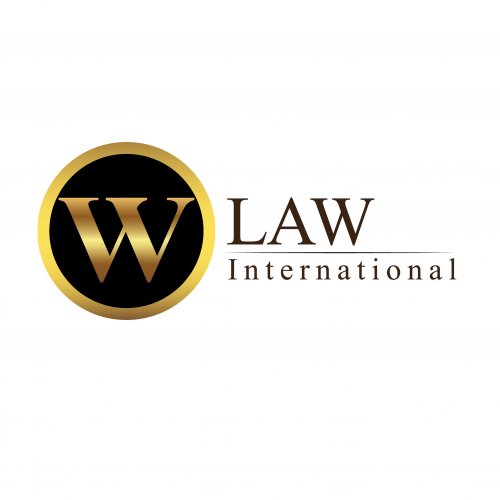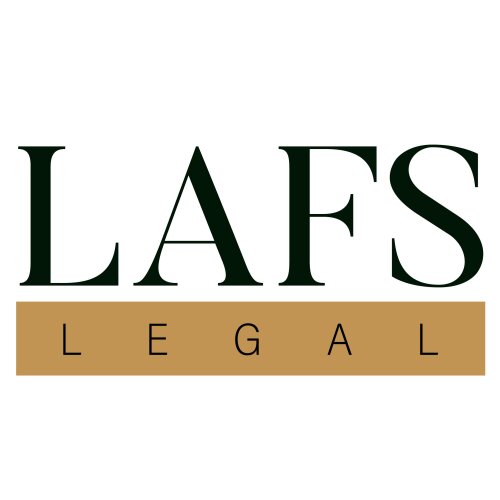ทนายความ พินัยกรรม ที่ดีที่สุดใน ประเทศไทย
แบ่งปันความต้องการของคุณกับเรา รับการติดต่อจากสำนักงานกฎหมาย
ฟรี ใช้เวลา 2 นาที
หรือปรับแต่งการค้นหาของคุณโดยเลือกเมือง:
รายชื่อทนายความที่ดีที่สุดใน ประเทศไทย
คู่มือกฎหมายเขียนโดย Smart Legal Solutions:
- Main Legal Measures to Protect Foreign Investment in Thailand
- The importance of the geographical indications for the Thai economy
ประเทศไทย พินัยกรรม คำถามทางกฎหมายที่ตอบโดยทนายความ
เรียกดู คำถามทางกฎหมาย 1 ข้อ ของเรา เกี่ยวกับ พินัยกรรม ใน ประเทศไทย และอ่านคำตอบจากทนายความ หรือถามคำถามของคุณเองได้ฟรี.
- พินัยกรรมและพินัยกรรมฉบับยืนยัน
- ฉันเป็นชาวต่างชาติที่พักอาศัยอยู่ในประเทศไทยมานาน และมีสมุดทะเบียนคนต่างด้าวพักอาศัยในประเทศไทย อยากทราบว่าจะทำพินัยกรรมสำหรับบุตรชายของฉันซึ่งเกิดและเติบโตในประเทศไทยอย่างไรให้เป็นผู้จัดการมรดกและผู้รับประโยชน์จากทรัพย์สินของฉันในประเทศไทย ฉันมีพินัยกรรมในประเทศบ้านเกิดไว้สำหรับทรัพย์สินในประเทศนั้นแล้ว ขอบคุณค่ะ/ครับ
-
คำตอบจากทนายความ โดย SJ Law Experts
**SJ Law Experts, Islamabad**เรื่องทั้งหมดที่เกี่ยวข้องกับ คำร้องขอวีซ่าผู้ย้ายถิ่นสหรัฐฯ (U.S. Immigrant Visa Petitions), คำร้อง USCIS (USCIS Petition), รายงานการเกิดในต่างประเทศต่อสถานกงสุลของ USCIS (Consular Report of Birth Abroad – CRBA), คำร้องขอยกเว้นของ USCIS (USCIS Waiver Petition), คำร้องขอพิจารณาใหม่ของ USCIS (USCIS Motion), วีซ่ากลับเข้าอยู่สหรัฐฯ (SB-1 Visa), วีซ่าผู้ไม่ย้ายถิ่นของสหรัฐฯ, วีซ่าสำหรับแคนาดา สหราชอาณาจักร และกลุ่มประเทศเชงเก้น รวมถึง กฎหมายครอบครัว...
อ่านคำตอบฉบับเต็ม
1. เกี่ยวกับกฎหมายพินัยกรรมในประเทศไทย
พินัยกรรมในประเทศไทยอยู่ภายใต้กรอบของประมวลกฎหมายแพ่งและพาณิชย์ ซึ่งกำหนดว่าเจ้าของทรัพย์สินสามารถสั่งสมทรัพย์ที่จะถ่ายโอนหลังเสียชีวิตได้ตามคำสั่งที่เป็นลายลักษณ์อักษรหรือสาธารณะ
กฎหมายพินัยกรรมในไทยมีหลายรูปแบบเพื่อความเหมาะสมของสถานการณ์ เช่น พินัยกรรมลายลักษณ์อักษร พินัยกรรมต่อหน้าเจ้าพนักงานที่มีอำนาจ และพินัยกรรมปากเปล่าในกรณีฉุกเฉิน โดยต้องมีพยานตามข้อกำหนดทางกฎหมาย
เมื่อถึงเวลาสิ้นสุดชีวิต ผู้รับมรดกจะได้รับทรัพย์สินตามที่ระบุในพินัยกรรม หากมีข้อพิพาท ศาลจะพิจารณาตามหลักฐานและเงื่อนไขของกฎหมายมรดกที่เกี่ยวข้อง
2. ทำไมคุณอาจต้องการทนายความ
สถานการณ์เฉพาะที่อาจต้องทนายความช่วยเหลือ ได้แก่ การจัดทำพินัยกรรมที่มีทรัพย์สินหลายประเภท เช่น ที่ดิน หุ้น ธุรกิจ หรือทรัพย์สินต่างประเทศ
กรณีตัวอย่างที่พบได้จริงในประเทศไทย เช่น คู่สมรสมีบุตรหลายคนและทรัพย์สินมาก ผู้ตายต้องการแบ่งทรัพย์อย่างชัดเจนเพื่อป้องกันข้อพิพาทระหว่างบุตรซึ่งต่างกันในชาติตระกูล
กรณีที่มีครอบครัวต่างชาติหรือทรัพย์สินในต่างประเทศ ต้องวางแผนมรดกให้สอดคล้องกับกฎหมายหลายประเทศ และลดความเสี่ยงการถูกถอดถ้อยคำพินัยกรรมที่ไม่ถูกต้องออกจากการบังคับใช้
กรณีมีอสังหาริมทรัพย์ไทยที่เป็นที่ดินซึ่งต่างชาติไม่สามารถครอบครองโดยตรง การวางแผนพินัยกรรมต้องคำนึงถึงข้อจำกัดทางกฎหมายเรื่องการถือครองที่ดิน
กรณีมีบุตรที่ยังไม่บรรลุนิติภาวะหรือต้องการผู้ดูแลกรณีฉุกเฉิน ทนายความจะช่วยแต่งตั้งผู้ดูแลและเงื่อนไขการบริหารทรัพย์เพื่ออนาคตของเด็ก
กรณีต้องการแก้ไขพินัยกรรมเดิมเนื่องจากการเปลี่ยนแปลงครอบครัวหรือทรัพย์สิน ทนายความช่วยให้การแก้ไขถูกต้องตามกฎหมายและมีผลบังคับใช้
3. ภาพรวมกฎหมายท้องถิ่น
กฎหมายที่ควบคุมพินัยกรรมในประเทศไทยหลักๆ เป็นไปตาม ประมวลกฎหมายแพ่งและพาณิชย์ โดยเฉพาะส่วนที่เกี่ยวข้องกับมรดกและพินัยกรรม ซึ่งมักอ้างถึงมาตราต่างๆ ใน Book VI
เพื่อความชัดเจนในการตีความและการบังคับใช้งาน ควรตรวจสอบข้อความกฎหมายที่ ราชกิจจานุเบกษา ซึ่งเป็นแหล่งประกาศกฎหมายอย่างเป็นทางการ และเว็บไซต์ราชการที่ให้ข้อมูลกฎหมายล่าสุด
แหล่งข้อมูลทางกฎหมายอย่างเป็นทางการนี้ช่วยให้คุณทราบข้อกำหนดรูปแบบพินัยกรรม และขั้นตอนการบังคับใช้งานที่ศาลพิจารณา
4. คำถามที่พบบ่อย
พินัยกรรมคืออะไร และทำไมจึงสำคัญในประเทศไทย?
พินัยกรรมคือคำสั่งทางกฎหมายที่ระบุว่าใครควรได้รับทรัพย์สินหลังผู้ทำพินัยกรรมเสียชีวิต การทำพินัยกรรมช่วยลดข้อพิพาทระหว่างทายาท และช่วยให้ทรัพย์ถูกแจกจ่ายตามความตั้งใจของผู้ทำ
อะไรคือรูปแบบพินัยกรรมที่ยอมรับในประเทศไทย?
ประเทศไทยยอมรับ 3 รูปแบบหลัก ได้แก่ พินัยกรรมลายลักษณ์อักษร พินัยกรรมต่อหน้าเจ้าพนักงานที่มีอำนาจ และพินัยกรรมปากเปล่าในกรณีฉุกเฉิน โดยทุกแบบมีเงื่อนไขและพยานที่กำหนด
ฉันจะทำพินัยกรรมได้อย่างไร และต้องเตรียมอะไรบ้าง?
คุณสามารถติดต่อทนายความหรือเจ้าพนักงานที่มีอำนาจเพื่อทำพินัยกรรมได้ โดยเตรียมทรัพย์สินสำคัญ รายชื่อผู้รับมรดก และเอกสารระบุตัวตน ผู้ทำพินัยกรรมควรมีความชัดเจนด้านทรัพย์สินและเงื่อนไข
ค่าใช้จ่ายในการทำพินัยกรรมประมาณเท่าไร?
ค่าใช้จ่ายขึ้นกับรูปแบบและบริการที่เลือก โดยสามารถอยู่ในช่วงหลายพันถึงหลักหมื่นบาท เช่น ค่าออกแบบพินัยกรรมโดยทนายความ หรือค่าธรรมเนียมการบันทึกกับเจ้าพนักงาน
ระยะเวลาการทำพินัยกรรมมักใช้เวลานานเท่าไร?
กระบวนการอาจใช้ตั้งแต่สัปดาห์ถึงหลายสัปดาห์ขึ้นกับความซับซ้อนของทรัพย์สิน และรูปแบบพินัยกรรมที่เลือก ผู้ทำพินัยกรรมควรเริ่มต้นลางานล่วงหน้า
ฉันต้องการหัวหน้าทนายความด้านพินัยกรรม ต้องทำอย่างไร?
คุณควรค้นหาทนายความที่มีประสบการณ์ด้านมรดกและพินัยกรรม ตรวจสอบความเชี่ยวชาญและความน่าเชื่อถือ จากนั้นนัดประเมินความต้องการและค่าใช้จ่าย
พินัยกรรมมีผลอย่างไรหากมีการหย่าร้างหรือสมรสซ้อน?
สถานการณ์ดังกล่าวอาจทำให้สิทธิในมรดกเปลี่ยนไป ควรปรึกษาทนายความเพื่อปรับปรุงพินัยกรรมให้สอดคล้องกับสถานการณ์ครอบครัว
พินัยกรรมลายลักษณ์อักษรควรมีลักษณะอย่างไร?
พินัยกรรมลายลักษณ์อักษรควรเขียนด้วยลายลักษณ์อักษรของผู้ทำ พื้นฐานคือการมีลายเซ็นของผู้ทำพินัยกรรม และพยานอย่างน้อยสองคน
พินัยกรรมปากเปล่ามีข้อจำกัดอะไรบ้าง?
พินัยกรรมปากเปล่ามีสถานะพิเศษและต้องมีการบันทึกเป็นลายลักษณ์อักษรภายในเวลาที่รวดเร็ว พร้อมพยานสองคน เพื่อความถูกต้อง
ทรัพย์สินที่อยู่นอกประเทศมีผลอย่างไรต่อพินัยกรรม?
ทรัพย์สินในต่างประเทศอาจอยู่ภายใต้กฎหมายต่างประเทศ ดังนั้นควรมีการระบุทรัพย์สินและผู้รับมรดกให้ชัดเจน และพิจารณาความสอดคล้องกับกฎหมายระหว่างประเทศ
ฉันควรปรึกษาทนายความอย่างไรเมื่อมีทรัพย์สินมากหลายประเภท?
ปรึกษาทนายความที่มีประสบการณ์ด้านมรดกและทรัพย์สินหลายประเภทเพื่อจัดทำพินัยกรรมที่ครอบคลุมทุกทรัพย์สิน และลดโอกาสข้อพิพาท
พินัยกรรมสามารถแก้ไขได้หรือไม่?
ได้ หากต้องการเปลี่ยนผู้รับมรดกหรือเงื่อนไข สามารถทำพินัยกรรมฉบับใหม่หรือแก้ไข ตามกระบวนการทางกฎหมายที่กำหนด
การทบทวนพินัยกรรมทุกกี่ปครั้งจึงปลอดภัย?
แนะนำทบทวนเมื่อมีการเปลี่ยนแปลงชีวิต เช่น สมรสใหม่ เด็กเกิด หรือทรัพย์สินเปลี่ยนแปลง เพื่อให้พินัยกรรมยังสอดคล้องกับความตั้งใจ
5. ทรัพยากรเพิ่มเติม
- กรมศาลยุติธรรม - ข้อมูลเกี่ยวกับการบังคับคดีและมรดกที่เป็นทางการ
- กรมบังคับคดี - แนวทางการดำเนินการเกี่ยวกับพินัยกรรมและการบังคับใช้มรดก
- ราชกิจจานุเบกษา - แหล่งประกาศกฎหมายและระเบียบข้อบังคับที่เกี่ยวข้อง
แหล่งข้อมูลอ้างอิงที่เชื่อถือได้:
“ประมวลกฎหมายแพ่งและพาณิชย์ คือกรอบหลักในการพินัยกรรมและมรดกในประเทศไทย”
“ราชกิจจานุเบกษาเป็นแหล่งประกาศและอัปเดตกฎหมายอย่างเป็นทางการ”
6. ขั้นตอนถัดไป
- ประเมินสถานการณ์ทรัพย์สินของคุณและผู้รับมรดก เพื่อกำหนดรูปแบบพินัยกรรมที่เหมาะสม ใช้เวลาดำเนินการ 1-2 สัปดาห์
- ปรึกษาทนายความด้านพินัยกรรมเพื่อประเมินความเสี่ยงและความถูกต้องทางกฎหมาย ตั้งเวลาและค่าใช้จ่าย
- กำหนดรูปแบบพินัยกรรมที่เหมาะสม (ลายลักษณ์อักษร หรือสาธารณะ หรือปากเปล่าในกรณีฉุกเฉิน) และเตรียมเอกสารส่วนตัว
- เตรียมทรัพย์สินสำคัญและเอกสารระบุตัวตน ตรวจสอบลำดับผู้รับมรดกและเงื่อนไข
- ทำพินัยกรรมกับทนายความหรือตัวแทนที่มีอำนาจ (ขึ้นกับรูปแบบ) และตรวจสอบความถูกต้อง
- นำพินัยกรรมเข้าสู่กระบวนการบันทึก/รับรองตามรูปแบบที่เลือก ใช้เวลาประมาณ 1-4 สัปดาห์
- เก็บสำเนาพินัยกรรมไว้ในที่ปลอดภัย พร้อมแจ้งผู้ดูแลและทนายความเพื่อการอัปเดตเมื่อเกิดเหตุการณ์สำคัญ
Lawzana ช่วยคุณค้นหาทนายความและสำนักงานกฎหมายที่ดีที่สุด ใน ประเทศไทย ผ่านรายชื่อผู้เชี่ยวชาญด้านกฎหมายที่มีคุณสมบัติเหมาะสมที่คัดสรรและตรวจสอบล่วงหน้า แพลตฟอร์มของเรานำเสนอการจัดอันดับและโปรไฟล์โดยละเอียดของทนายความและสำนักงานกฎหมาย ช่วยให้คุณเปรียบเทียบตามสาขากฎหมาย รวมถึง พินัยกรรม ประสบการณ์ และความคิดเห็นของลูกค้า
แต่ละโปรไฟล์ประกอบด้วยคำอธิบายเกี่ยวกับสาขากฎหมายของสำนักงาน รีวิวจากลูกค้า สมาชิกในทีมและหุ้นส่วน ปีที่ก่อตั้ง ภาษาที่พูด ที่ตั้งสำนักงาน ข้อมูลการติดต่อ การมีตัวตนบนโซเชียลมีเดีย และบทความหรือแหล่งข้อมูลที่เผยแพร่ สำนักงานส่วนใหญ่บนแพลตฟอร์มของเราพูดภาษาอังกฤษและมีประสบการณ์ทั้งในเรื่องกฎหมายท้องถิ่นและระหว่างประเทศ
ขอใบเสนอราคาจากสำนักงานกฎหมายชั้นนำ ใน ประเทศไทย — รวดเร็ว ปลอดภัย และไม่ยุ่งยาก
ข้อจำกัดความรับผิดชอบ:
ข้อมูลที่ให้ไว้ในหน้านี้มีวัตถุประสงค์เพื่อเป็นข้อมูลทั่วไปเท่านั้นและไม่ถือเป็นคำแนะนำทางกฎหมาย แม้ว่าเราจะพยายามตรวจสอบความถูกต้องและความเกี่ยวข้องของเนื้อหา แต่ข้อมูลทางกฎหมายอาจเปลี่ยนแปลงได้ตามกาลเวลา และการตีความกฎหมายอาจแตกต่างกันไป คุณควรปรึกษาผู้เชี่ยวชาญด้านกฎหมายที่มีคุณสมบัติเหมาะสมเพื่อขอคำแนะนำเฉพาะสำหรับสถานการณ์ของคุณเสมอ
เราปฏิเสธความรับผิดทั้งหมดสำหรับการกระทำที่ทำหรือไม่ทำตามเนื้อหาในหน้านี้ หากคุณเชื่อว่าข้อมูลใดไม่ถูกต้องหรือล้าสมัย โปรด contact us และเราจะตรวจสอบและแก้ไขตามความเหมาะสม
เรียกดูสำนักงานกฎหมาย พินัยกรรม ตามเมืองใน ประเทศไทย
ปรับแต่งการค้นหาของคุณโดยเลือกเมือง

















